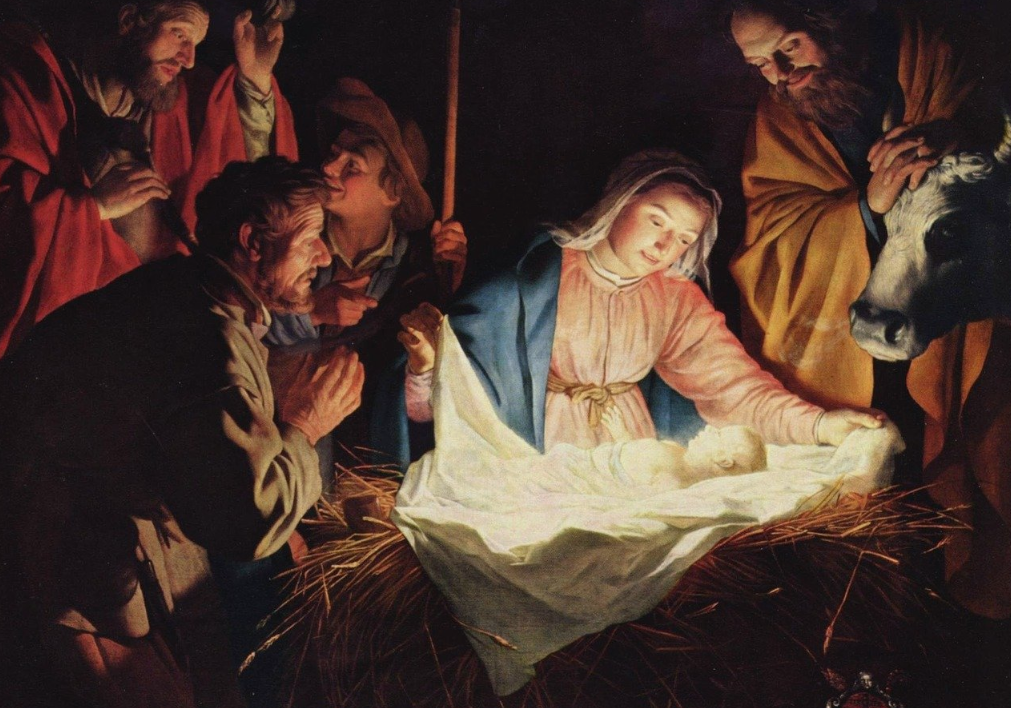On the 25th of December, Catholics celebrate the day of Jesus’s birth. We associate the holiday with the mystery of God’s incarnation. The Slovenian Bishops’ Conference explains that Jesus’ coming into history shows that God has definitively and irrevocably committed Himself to the world and to man.
The Catechism of the Catholic Church 221 states: “When God sends his only Son and the Spirit of love to the fullness of time, he reveals his deepest, innermost secret. God Himself is the eternal exchange of love: Father, Son, and Holy Spirit; and He has destined us to share in this eternal exchange.”
The Slovenian Bishops’ Conference explains that with the birth of Jesus, God becomes part of the history of humanity. The world was changed when the Son of God became incarnate. The year of his birth represents a fundamental historical dividing line. It is also a fundamental part of our civilisation. It also represents a dividing line in moral terms. For the Light has come to overcome the night of humanity, the Life has come to counter the culture of death.
“The Feast of the Nativity of Jesus, Our Lord, is an opportunity for every Christian to open himself and allow God to be born in his heart, thus strengthening and deepening his faith,” writes the Slovenian Bishops’ Conference.
The exact date of Jesus’s birth is unknown
Interestingly, the exact date of Jesus’s birth is not known, despite the fact that it is a historical fact and that his birth marks a historical dividing line. The date of Jesus’s birth was only fixed by Pope Julius I (337-352), on a day that we celebrate now. The holiday coincides with the winter solstice, which was already a time of celebration and festivals in pagan times, writes the Slovenian Bisphos’ Conference.
The Church adapted to this and filled this period with new content. The date of Jesus’s birth is no longer essential today, but the content is essential, namely the incarnation of the Son of God, who came into the world to save mankind from its sins.
“The Feast of the Nativity of the Lord has an eighth day, which ends with the Solemnity of Mary, the Holy Mother of God. In the middle of the eight days is the Sunday of the Holy Family. Another very important holiday of the Christmas season is the Epiphany of the Lord (which comes on the 6th of January). This celebrates the epiphany, the revelation of the divinity of Jesus. First to the wise men, then at his baptism in the River Jordan, and then at the wedding in Cana of Galilee. The holiday of the Baptism of Jesus, which happens on the Sunday after the Epiphany of the Lord, marks the end of the celebration of his hidden life and the beginning of the commemoration of the public proclamation and presence of the Kingdom of God,” explains the Slovenian Bishops’ Conference.
This year, the Slovenian bishops have also recorded a special Christmas message. The Bishop of Celje, Monsignor Dr Maksiimilijan Matjaž, said that the year that is slowly drawing to a close has been marked by many bridges being torn down. “The severe weather storms that have ravaged our region have destroyed too many homes and torn down many bridges. Bridges between the peoples of Russia and Ukraine continue to be destroyed, with no end to the war in sight. Bridges are also breaking down among the people of Jesus’ historic land, where the light of the Prince of Peace first shone. In our own country, too, we would like to see more mutual respect and more light of heart. The darkness of indifference seems to be winning. But we continue to trust.” He pointed out that at an earlier time in history, in the midst of the greatest darkness and evil, the word of the Almighty was heard: “See, I am doing a new thing! Now it springs up; do you not perceive it?” (Isaiah 43:19)
Ž. K.


